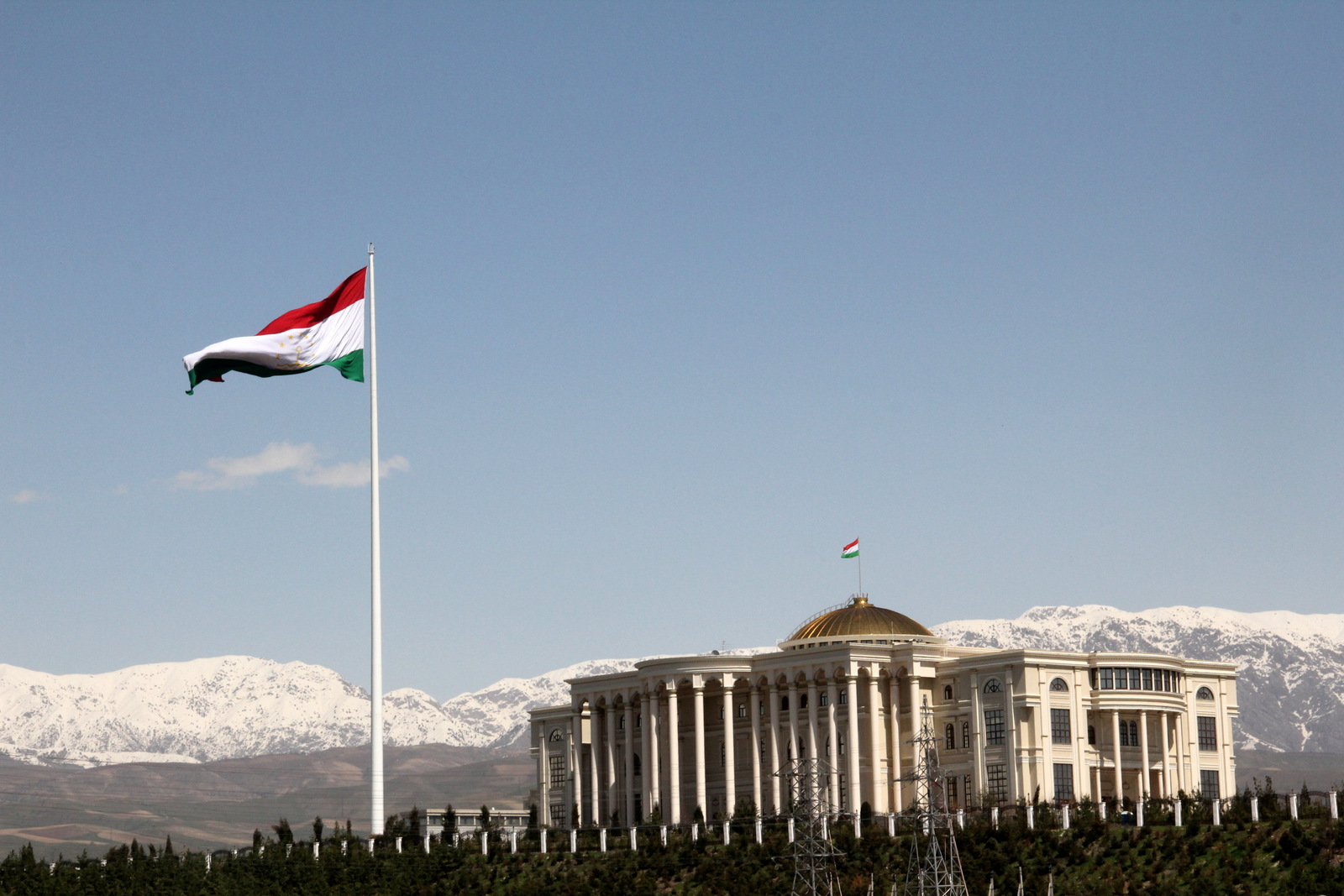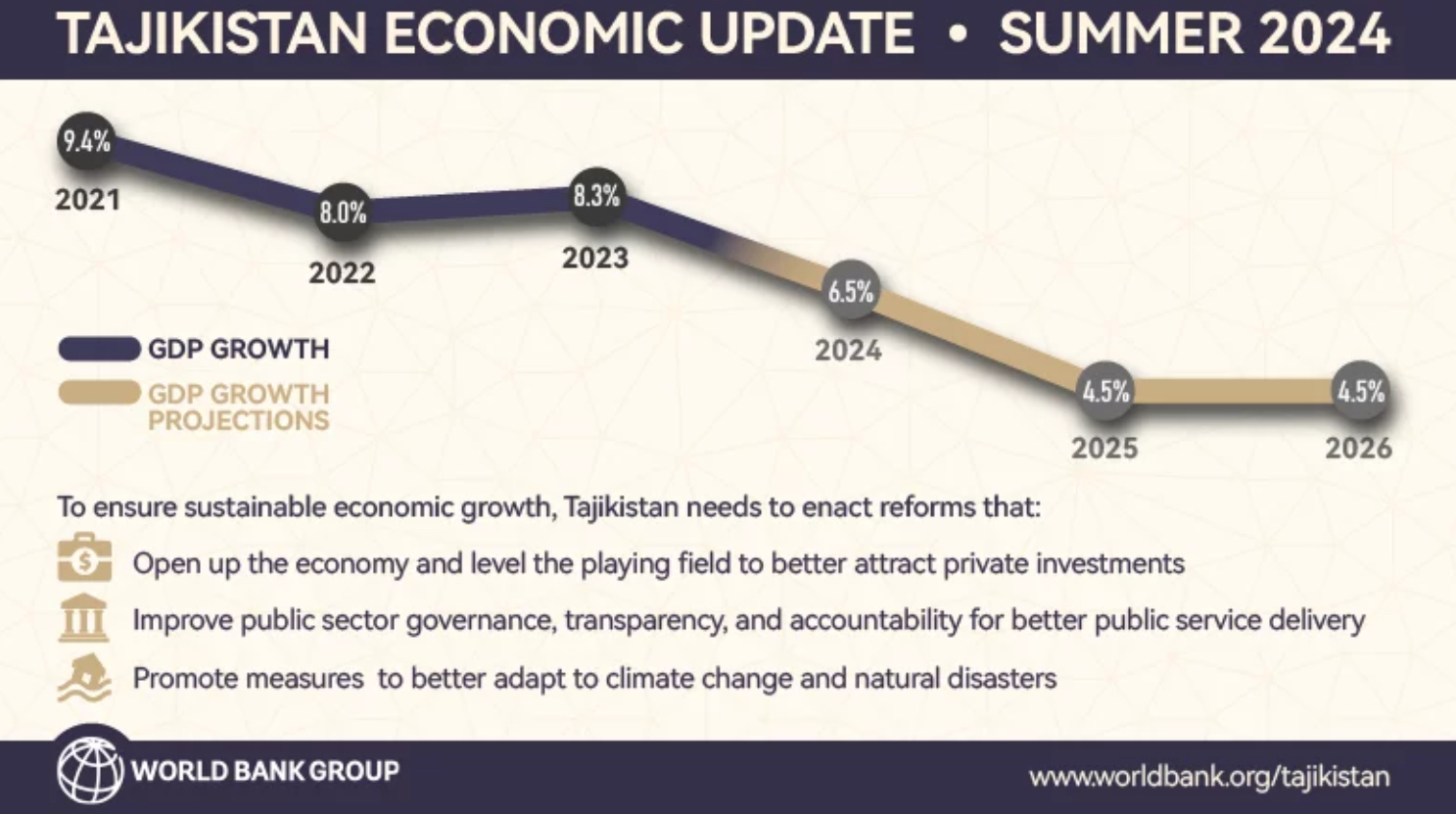Tajikistan has shown robust economic growth, expanding by 8.3% in 2023 and 8.2% in early 2024, driven by increased revenue from gold exports and public infrastructure spending, the World Bank reported.

Worker remittances and public wage hikes have also boosted economic activity, bolstering domestic demand and reducing poverty. Tighter monetary policies and moderating global food and fuel prices have further stabilized the economic landscape, supported by enhanced external grants that have lowered public debt levels.
However, challenges loom over Tajikistan's economic horizon. GDP growth is forecasted at 6.5% in 2024 and 4.5% in the medium term due to sluggish growth in key trading partners and domestic reform delays.
Remittances, a vital economic driver, are expected to slow, impacting private consumption and investment. Inflation may rise due to electricity tariff hikes and increased public service wages, while the fiscal deficit is set to widen in 2024 from reduced VAT revenue and higher spending on the Rogun Hydropower Plant, with a looming risk of debt distress until Eurobonds are repaid by 2027.
Several risks could disrupt Tajikistan's economic prospects, including global tensions and stricter migration policies by Russia. To sustain growth, Tajikistan must implement reforms focusing on economic openness, public sector governance improvements, and efficient public service delivery. Climate change adaptation measures are also critical to bolster economic resilience against natural disasters.
Tajikistan's economy heavily relies on state-owned enterprises (SOEs), with over 1,000 registered, of which more than 600 are majority state-owned. Dominating key sectors like mining, energy, and telecom, the top 10 SOEs hold 97% of total SOE assets.

Despite their prominence, most SOEs are unprofitable, with the top 25 SOEs incurring a significant net loss in 2023, posing fiscal risks equivalent to 3.2% of GDP.
State involvement in SOEs distorts market dynamics through preferential treatments such as tax breaks and subsidized loans, hindering private sector development. The absence of a clear policy framework for SOE creation and ownership results in their widespread presence even in competitive markets, where their role cannot be justified by addressing market failures.
This footprint reduces market efficiency and discourages private investment. In competitive sectors, SOEs exacerbate distortions by not needing to achieve commercial rates of return, giving them an unfair advantage over private competitors.
Conflicts of interest arise from their dual roles in policymaking and market participation, exacerbated by lenient insolvency procedures and opaque state aid distribution. Restrictions on foreign investment and outdated price regulations further impede market efficiency.
The World Bank emphasizes that overcoming these hurdles in Tajikistan necessitates implementing clear policies to ensure competitive fairness, transparent distribution of state aid, and reforms that promote equitable competition. By creating a more level playing field for investors, Tajikistan can unleash its economic potential, stimulate private sector growth, and achieve sustainable development.
Follow Daryo's official Instagram and Twitter pages to keep current on world news.
Comments (0)